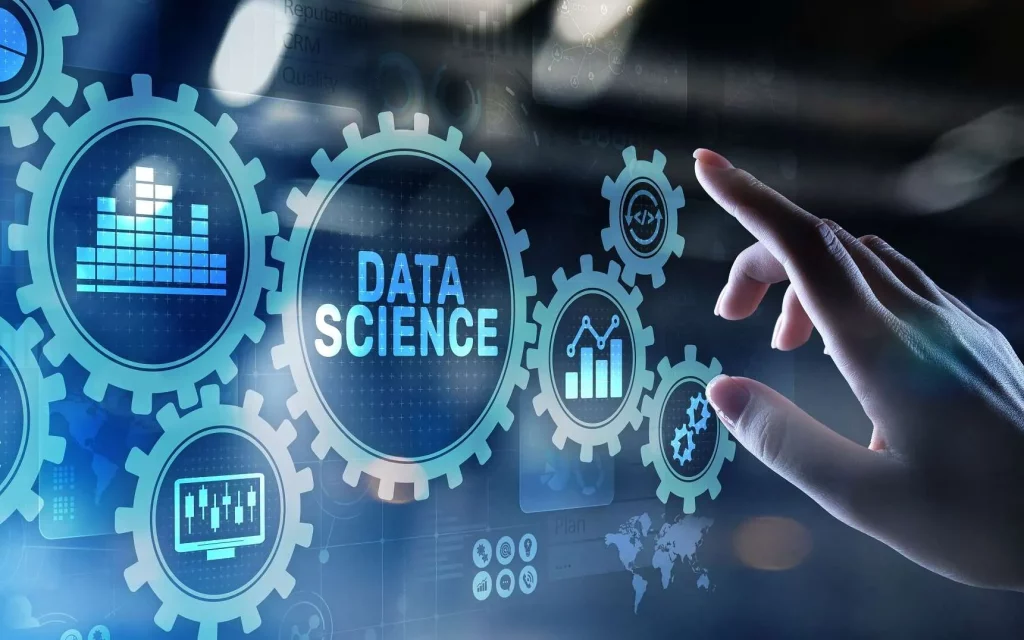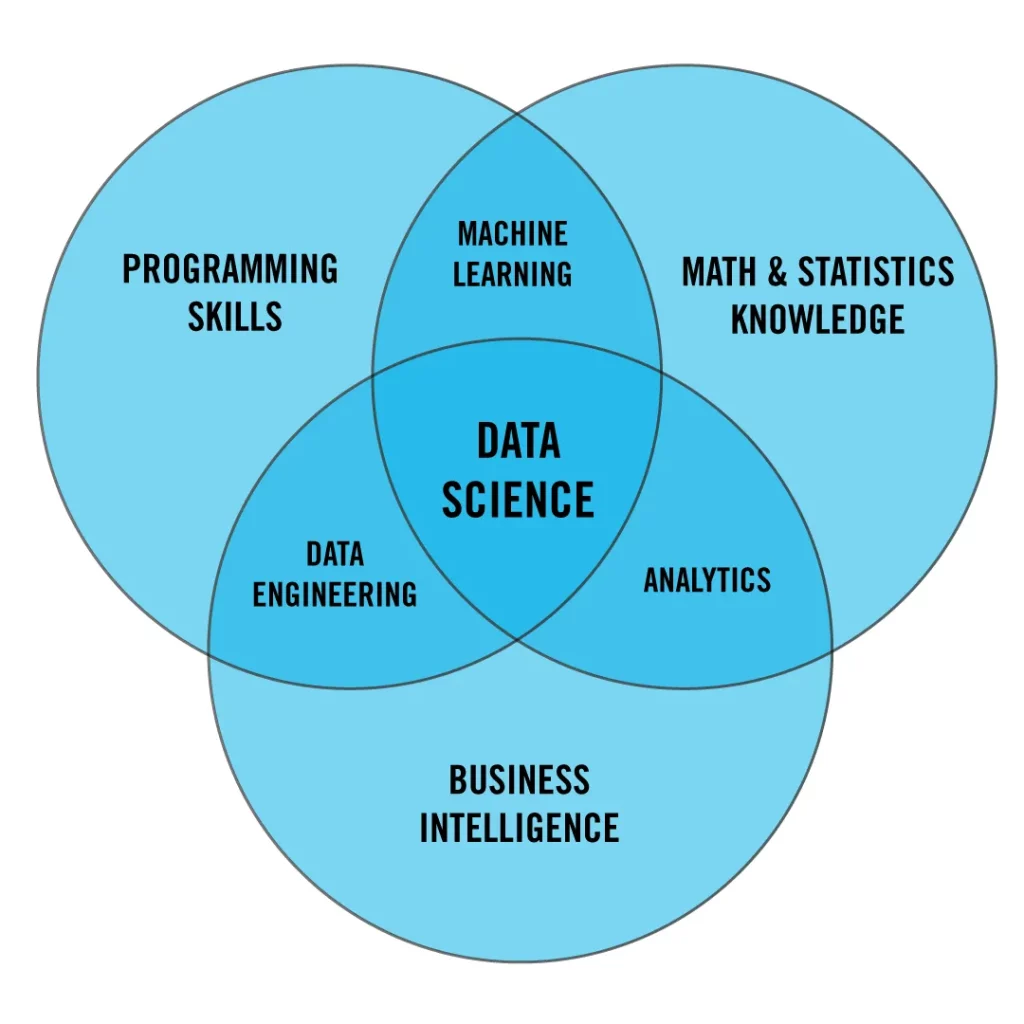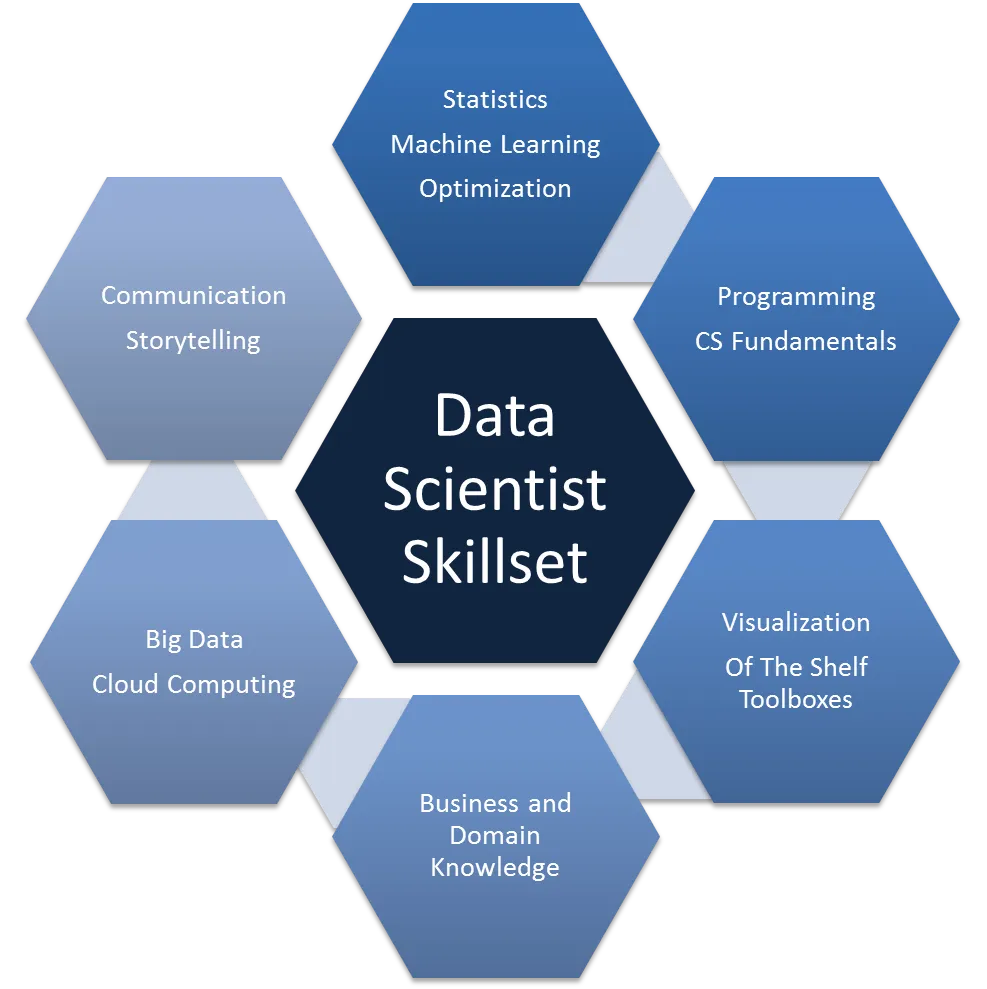Would you say you are very enthusiastic to become a skilled data scientist? But does the rapidly evolving scenario in the field of data science worry you? You are not alone. This is a common scenario that most people face. You may overcome this situation by constantly upgrading yourself with specialized and diverse skills. These skills will help you remain competitive in the data-driven world. These data science skills are also important for you as a professional as they will help you stay ahead of the curve and excel in your career.
With each passing day, the scenario in the field of data science continues to change. This is due to technological advances, changing industry needs and new data models. Hence, to remain competitive, Upcoming Data Scientists must focus on mastering a range of data science skills that are essential to succeed. This article will explore both technical and non technical data skills that will help you advance your career. These skills will also help you remain ahead of the competition.

Technical Data Science Skills
1. Programming Languages
You need to have strong programming skills to become a data scientist. Programming is the basic foundation of data science. Python and R are the most commonly used programming languages in data science. Python is a versatile language that is used for data analysis and manipulation. It has an easy interface and extensive libraries like Pandas, NumPy, and SciPy.
Another widely used language is R. It is a powerful tool used for Data Visualization and statistical analysis. It provides statistical methods, graphics, and data modelling tools. The language is popular in academic circles and is generally used by statisticians. Further, knowledge of SQL(Structured Query Language) is important for extracting data from relational databases.
You can gain knowledge on these languages by understanding their syntax and usage in various projects. When you master these programming languages by attending online courses or coding classes, it enhances your data skills. It also improves your ability to handle complex data tasks efficiently.

2. Machine Learning and AI
Machine learning and artificial intelligence are essential tools of data science. These skills will help you build a successful career in the field. You could familiarize yourself with frameworks such as TensorFlow and PyTorch. You could also acquaint yourself with Supervised and Unsupervised Machine Learning algorithms. These include
- Linear Regression
- Decision Trees
- Neural Networks
- Logistic Regression
- K-means algorithm s
- Decision Tree
- K Nearest Neighbor
When you have a solid knowledge of these data science skills, you will be able to build sophisticated models. These models can derive insights and predictions from complex data sets. You can join online courses that provide theoretical and practical knowledge to further enhance your skills.
3. Big Data Technologies
You must be already aware that there has been so much explosion of data in recent years. This has necessitated the use of big data technologies. In other words, working with large datasets has become unavoidable. You could draw insights from big data, tools and platforms such as Apache Hadoop, Spark, and Kafka can be used.
You can master these big data tools and platforms to improve your data science skills. Further, try to gain knowledge on their use cases so that you can identify the right technology for various scenarios. Knowledge of these technologies makes it one of the key qualifications for a data scientist and an asset in the data science toolkit.

4. Statistical Analysis
You should have a solid foundation in statistics and mathematics to become a data scientist. As your basic job is to gather, analyze and interpret large data sets, a firm grasp of statistics and probability is essential. These statistical techniques will help identify trends, get an idea about the data involved and draw useful interpretations.
Some of the key concepts that need to be understood to make accurate and informed decisions include
- Linear Regression
- Over and under sampling
- Probability theory
- Hypothesis testing
- Bayesian statistics
- Clustering
- Dimension reduction
Furthermore, some of the analytical tools that can be really helpful in Statistical Analysis include
- SAS
- Hadoop
- Spark
- Hive
- Pig
5. Cloud Computing Skills
Have you seen that more and more companies are moving to cloud computing? You coud consider learning cloud platforms like Amazon Web Services, Google Cloud Platform and Microsoft Azure to improve your data science skills. These platforms offer scalable resources for data storage, processing and machine learning.
Data scientists must be skilled in leveraging cloud services to manage data infrastructure, deploy models and collaborate effectively in a cloud-based environment. As there are not much experts in this area, it would be an added advantage if you possess knowledge on moving databases to cloud services. Hence, familiarity of cloud services and key concepts behind cloud computing such as scalability, elasticity and are considered valuable data science skills.
6. Domain Knowledge
You should have a good understanding of the specific industry or domain in which you will be working for effectively applying data science. Domain knowledge helps you interpret data in context and find relevant insights. Therefore, having both technical skills and domain specific knowledge is highly valuable in data science. This combination enables you to deliver solutions that are both innovative and practical.
7. Data Visualization

You should have the ability to visualize data and communicate your findings. This is an important data analysis skill that will help stakeholders to make wise decisions. You must also be good at creating visualizations that translate complex data into actionable insights. For this data can be represented data as graphs, charts and maps. You could also gain proficiency in visualization tools like Tableau, Power BI, and D3 to present data insights clearly and persuasively.
8. Data Engineering and Data Management
Data engineering involves designing and implementing systems. It collects, stores, and processes data. You need expertise in skills like data warehousing, ETL processes and Database Management. These skills are important because data scientists often handle large and complex datasets. Additionally, knowledge in SQL and NoSQL databases for managing and preparing data for analysis would be an advantage.
Non Technical Data Science Skills
9. Continuous learning ability and Data Intuition
Your ability to learn new skills, tools and techniques continuously is one of the important non technical data science skills. Hence, to be successful in your career you must learn continuously. You can also take part in webinars and workshops to keep yourself updated. In addition, you may enroll for online courses that help you increase your knowledge. Data intuition is another important non-technical skill one must possess. It is the process of finding patterns or trends from a huge data set. However, this skill comes with experience and practice.
10. Soft Skills
Just like technical skills, soft skills also play a significant role in your effectiveness. These skills include communication, critical thinking, problem solving and collaboration. They are also essential for working in cross functional teams and addressing complex challenges. The ability to present data insights clearly, negotiate solutions, and adapt to changing project requirements is vital for successful data science careers too.
Kodakco’s Data Science Courses

Kodakco is an upskilling company dedicated to providing business solutions through training and technology. Its mission is to empower individuals by equipping them with essential skills. Additionally, Kodakco delivers innovative IT-enabled solutions to help clients grow their businesses. Kodakco Academy offers Data Science courses that help you master key skills like data manipulation, data visualization and machine learning.
Do you want to master data science skills and make a career in Data Science? Then the Data Science Courses offered by Kodacko is the right choice for you, as it will help you tide over the immense competition. Enroll now with kodacko to make a career in Data Science!
Conclusion
In summary, mastering the top 10 data science skills helps professionals thrive in a dynamic environment. Proficiency in programming languages, advanced ML techniques and big data technologies, combined with strong data visualization, statistical analysis and data engineering skills, forms the core of data science skills. Additionally, domain knowledge, cloud computing and soft skills are crucial for applying technical skills effectively and ethically. By focusing on these areas, data scientists tackle complex challenges and opportunities that lie ahead.
Recommended Reads
Top 20 Data Analysis Tools For 2026
Maximizing Your Learning Potential with a Data Science Course
Top 20 Data Modeling Interview Questions and Answers
What Are The Latest Developments In Data Science?
What is Big Data Analytics and Why It is Important?
FAQs
There are two types of skills namely technical and non technical that will be appealing to the organizations in 2026. Some of them are Programming (Python and R), Machine Learning, Statistical Analysis and Cloud Services.
Data specialists engage with vast, unwieldy data and use their technical as well as non-technical abilities to scout out insights from it.
You can master the skills mentioned in this article.
Data scientists are the key candidates who bring data science applications into the fold of the organization. They analyze both the quantitative and qualitative data sets to each application’s specifications. They ponder over the insights which are the road to customer service improvement, instructive advertising, betterment of the supply chain, and enterprise optimization.
The world is transformed drastically as data is regarded the new oil. Companies are searching for professionals who can not only pick up the shards of data but also transform it into something sound and sensible so it can be used in the decision-making process. There is also huge demand for such professionals across the world.


